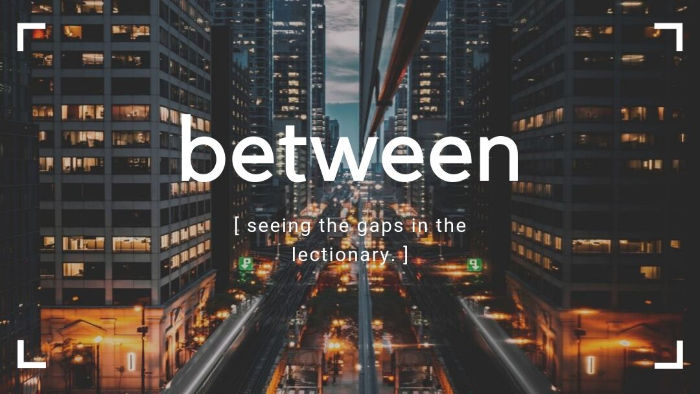
A look at the gaps in the lectionary.
This week: the gap between Lent 5B and the Sunday of the Passion
The text: Mark 11-14
The gospel passage for Lent 5B, which is from John, occurs on Palm Sunday, just after Jesus enters Jerusalem. As we discussed last week, this comes on the heels of Jesus audaciously raising Lazarus from the dead (which certain people didn’t like).
Coming back to Mark, we have to deal with all of Holy Week in a single Sunday. Jesus arrives, and we process with our palms, and then, before we know it, he is dying on a cross. Of course, I have some thoughts.
But there is far more here than Jesus showing up and then dying. And more than showing up, having dinner, and dying.
We always skip over the good stuff.
And it is hard not to recognize that the stuff we skip over is political. It is Jesus pushing the established order and demanding a better way.
And when we read it all in one sitting, it is hard not to see how popular this message was with the people.
The False Conundrum
This highlights the challenge we face every Palm/Passion Sunday: how the crowds go from celebration to condemnation in just a few days. We ask this every year and speculate how this can happen.
But it shows the truth in the text. This change doesn’t happen.
Jesus begins with praise and excites the crowds with his teaching in the temple. The crowds chanting on Good Friday aren’t the masses. They haven’t changed their minds. This isn’t “the people”. It’s a lynch mob driven by the authorities and ginned up by fear.
The gospels each reveal this differently. There is a clear difference in Mark, for instance. Massive crowds—the people—love Jesus. A small group, primarily the Temple and religious authorities, are chanting for his death at the end. While in Luke, it is likely that some get swayed by (or chase) public opinion.
We want to blanket the guilt upon humanity.
This is the real reason we do this. It gives us a moral and spiritual conviction, even today. It says that we did this. And then we love to put the crowd’s words into our own mouths.
“Crucify him!” we shout, reenacting an opportunity to share in the guilt with all of humanity.
But humanity didn’t kill Jesus. Empire did. The desire for control, protection, and domination. This isn’t “being human”. This is trying to control the world. Power. Anti-Christ behavior.
And this is something we are cautioned against by both Bible and Jewish Scholars—that these words are not ours and the blame isn’t ours. Because the seeking of responsibility and avoiding responsibility lead us to recreate oppression, particularly anti-semitism.
Jesus is executed by the Roman Empire. And somehow, that is the one thing we find ourselves not thinking about during Holy Week.
It is a political story.
There is no escaping it—and trying to is political. Avoiding the politics is political. Claiming religion without politics is a political act.
It is so elementary, but it shows how much we have politicized the political.
And this is the disappointing truth of our having a single Sunday for the Passion and then a Sunday for the Resurrection. It makes us think we can do religious faith itself without politics. That there isn’t anything scandalous (or even divisive!) about claiming Jesus as savior and lord!
Empires run on worrying about ourselves, fearing our neighbor, and suffering alone. Literally—the act of avoiding politics.
So feeding the hungry is political. Helping people is political. Giving things away is political. Comforting the stranger is political. Peace is political. Eating bread and drinking wine is political.
Giving our singular allegiance to God is political.
This is the rest of the story.
The gospel story all the way through. Each of them in their own way tells a political story of a Messiah (political figure) recruiting followers to join him on his journey to confront empire, reveal its evil and God’s glory, and then to be raised on the third day by a merciful and loving God.
And the confrontation at the Temple during Holy Week is the culmination of the politics of the movement. That God has a different vision for creation than empire.
Love.
And as much as our instincts might guide us away from it and our liturgical practices avoid it, we must not look away.
Our savior was murdered over his politics by political operatives motivated by politics. Anyone unwilling to hear such a message is not open to the gospel.
